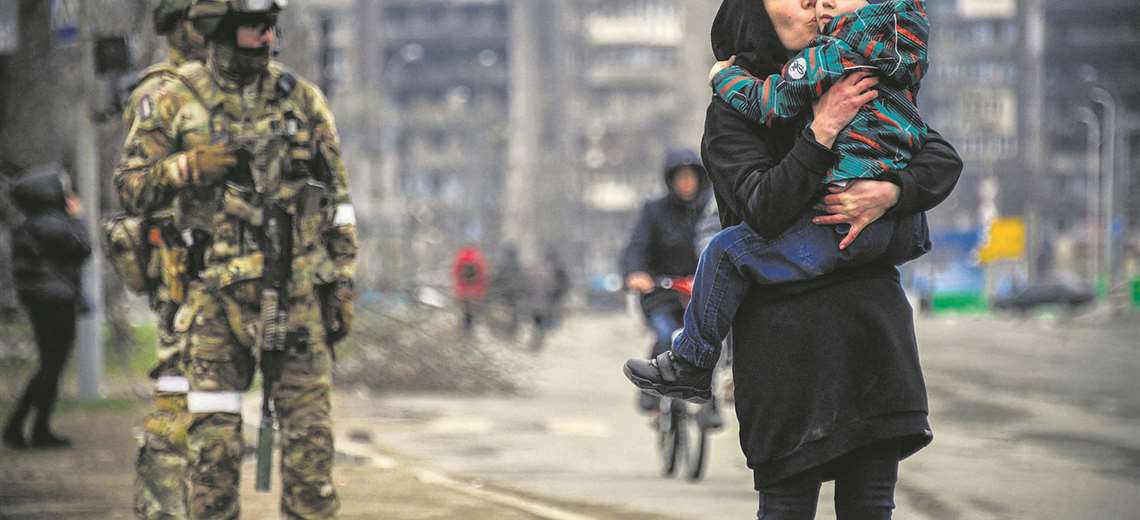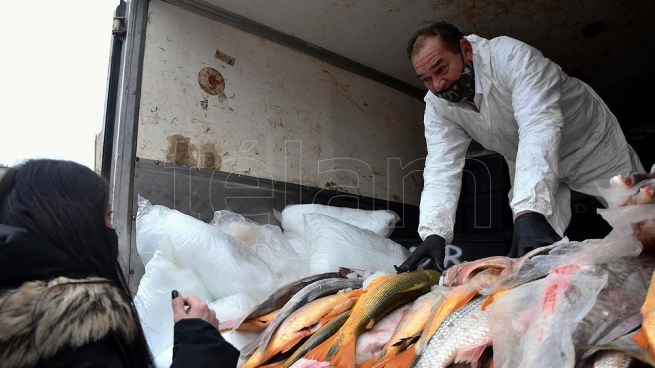Stunned in the middle of the street, Svitlana Peleligina looks at the remains of her apartment building destroyed by the last salvo of bombing in Kharkov, the second largest city in Ukraine.
“The whole house rumbled and shook,” the 71-year-old woman told AFP on Sunday. “Here everything started to burn.”
“Call to the firefighters. They said: ‘We are on our way, but we are also bombing,’” he recalls.
According to the authorities, five people died and 13 were injured andn the latest bombing in Kharkov, just 21 kilometers from the Russian border.
Since Russian President Vladimir Putin called off his offensive in northern Ukraine to take kyiv, his military efforts are now focused on the east of the country.
Kharkov is one of the strategic points that is now being bombed almost daily by Russian troops.
“You know when a dog hears a ‘boom’ and his whole body starts shaking even though the noise is far away? Now I am like this,” said Zinaida Nestrizhenko, 69, huddled by a road with her cat, which she managed to rescue from her house.
“Everything, every part of me is shaking,” he said.
On Sunday, AFP journalists on the scene heard two bursts of shelling and then saw five different fires in apartment blocks with shops in the ground floor, in what had been a quiet didowntown strito.
All surrounding government buildings were destroyed by earlier Russian airstrikes on the besieged city, which was home to 1.4 million people before the war.
They’re hurt
“On March 21, I left my house to smoke. A shell fell. I lost my arm.” Vladimir Lignov, 71, who embodies the tragic fate of the elderly Ukrainians, invisible victims of the war that devastates his country.
The man, a former train conductor, walks slowly down the corridor of a reception center in Dnipro, a city in central Ukraine that has become one of the country’s main humanitarian centers.
The left sleeve of his gray sweater is rolled up at the armpit. She finds it hard to explain what happened to her. He does not know what war he is a victim of, or who launched the projectile in Avdiivka, an industrial hub in the Donetsk region that Moscow has made one of his priorities.
“I do not understand what is happening. In a week I need to change my bandage at the Myrnohrad hospital (in the middle of the conflict zone, where he was amputated). But they tell me that I have to leave in three days”, he repeats over and over again. “Maybe it’s better to go to the cemetery. I don’t want to go on living,” he says.
“The most difficult are those who spent a lot of time in basements,” explains Olga Volkova, the director of the center, where 84 retirees have arrived.
On the other hand, Denys Shmygal, the Ukrainian Prime Minister, assured that they will not surrender in Mariupol. “The city has not fallen. Our military forces, our soldiers are still there. They will fight to the end,” he said in an interview with ABC.
The prime minister’s remarks come shortly after Moscow’s ultimatum expired, asking the last Ukrainian soldiers holed up in a Mariupol metallurgical complex to leave.


















